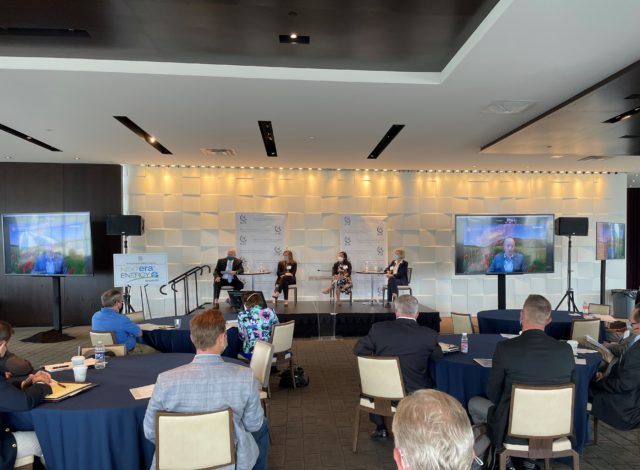DC Green Bank Swag Design Competition
DC Green Bank is excited to announce a new design contest! We want to roll out a new line of swag and promotional materials, including a new DCGB t-shirt and hooded sweatshirt, and we’re calling on all DC artists to submit designs. The contest is open to all residents of DC and we welcome a wide variety of styles and ideas.
Guidelines
You are welcomed (and encouraged) to take the design and your artwork in creative directions. The only rule is that all designs must include the DC Green Bank logo in an unaltered fashion. You can find multiple versions of our logo here (one, two, and three) for use in your design. Aside from that, be creative and design something that speaks to you! For inspiration for the design, feel free to review our website at www.dcgreenbank.com to learn more about what we do and how we are working to transform the city. You can submit as many designs as you want; however, remember that the primary purpose of the design is to be placed on the front or back of a new DC Green Bank t-shirt or hooded sweatshirt (although the winning design(s) may also be used on other promotional materials).
We know your time is valuable, and we are not expecting a perfectly flawless final product. If you are selected as our winner, we are open to compensating you for additional time to complete your design before we begin production of the new swag and promotional materials.
So What’s In It For You?
Everyone who submits a design will receive free DC Green Bank swag featuring the winning design(s). Additionally, all designs submitted will be featured on our social media pages, with the artist tagged, to help support their work.
The winning design(s) will be used on our swag and promotional materials, and the artists submitting the top three designs will receive a cash award!
1st place: $500
2nd place: $250
3rd place: $100
How to Enter
When you have completed your design, submit it through this form. Please save and upload your file as a .jpeg, .png, or other image file format. Please note the maximum file size is 50MB. You must submit a new form for each new design.
In order to be eligible to win, you must be following DC Green Bank on Instagram and Twitter. So, be sure to do that by the time you enter your submission! We are @DCGreenBank on both Instagram and Twitter.
If you have any questions, please email us at info@dcgreenbank.com.
How the Winners Will Be Selected
Once DC Green Bank reviews the submissions, we will open up voting on our social media accounts to let our followers vote on the winning designs. Make sure you reach out to friends and supporters to have them follow us on social media so they can vote for your design!
Design submissions will be accepted from July 15, 2021 through August 23, 2021.
Disclaimer
By entering this contest, you agree and acknowledge that DC Green Bank/DC Green Finance Authority owns all designs submitted through this contest and designs can be used for promotional materials and other business purposes.

